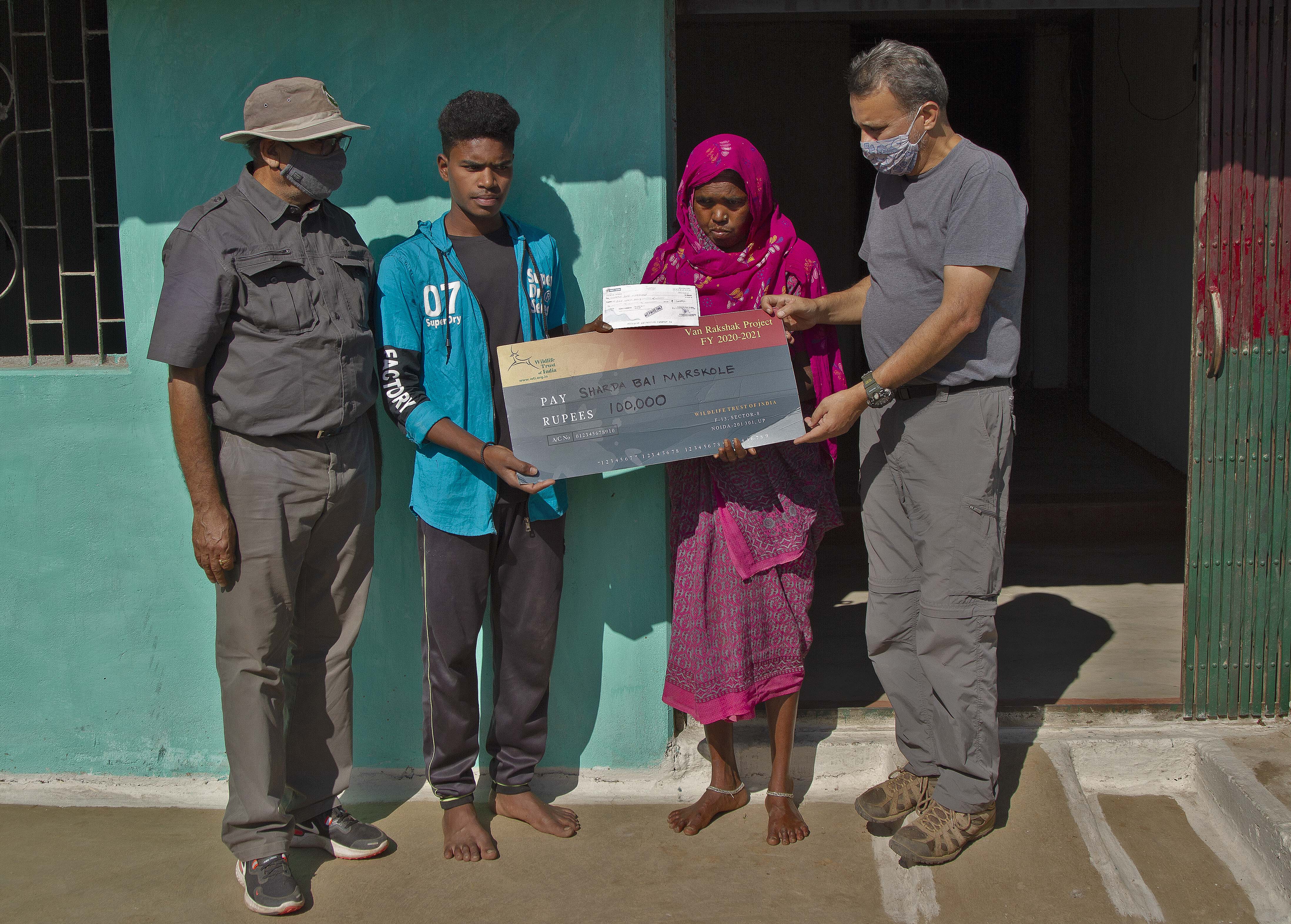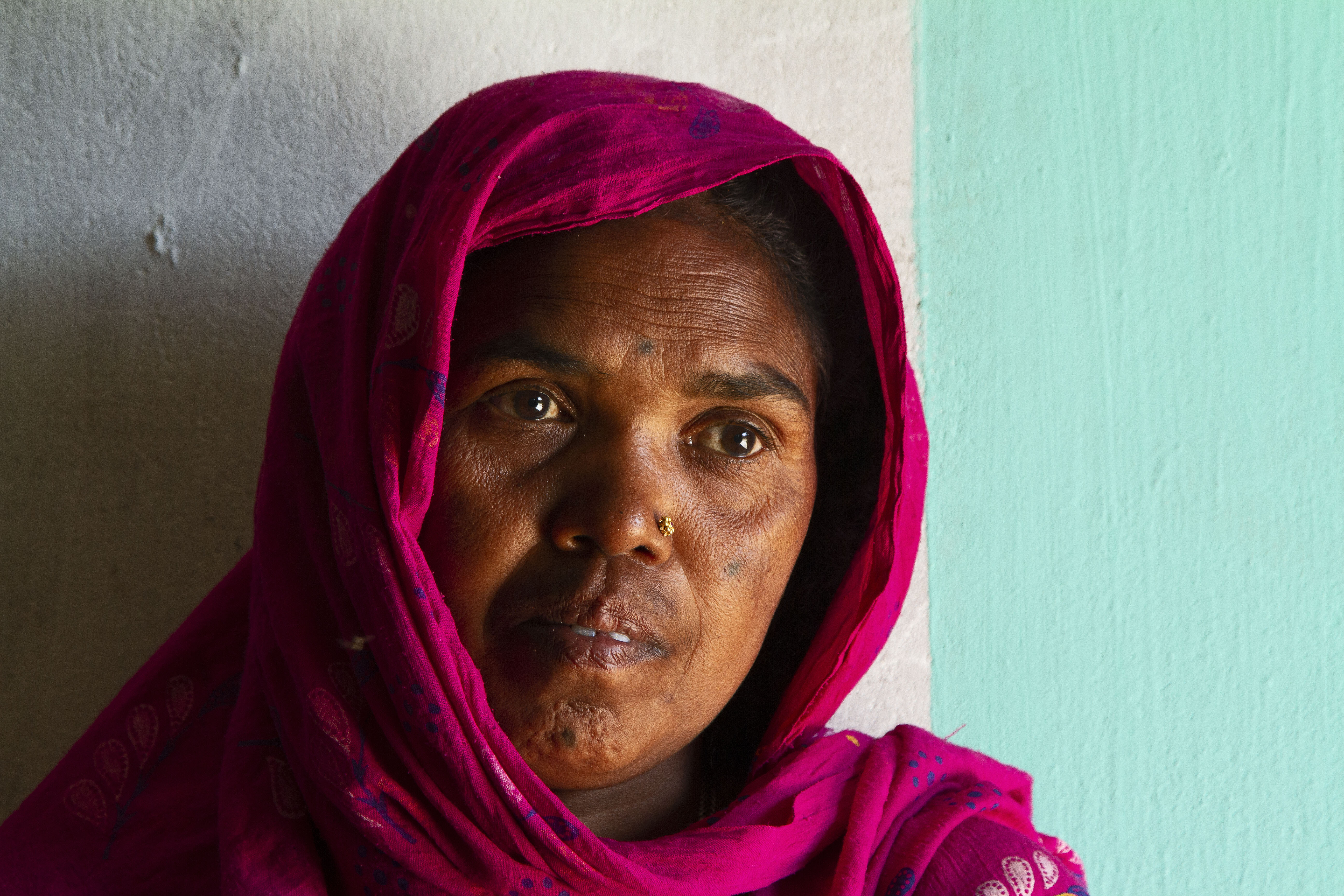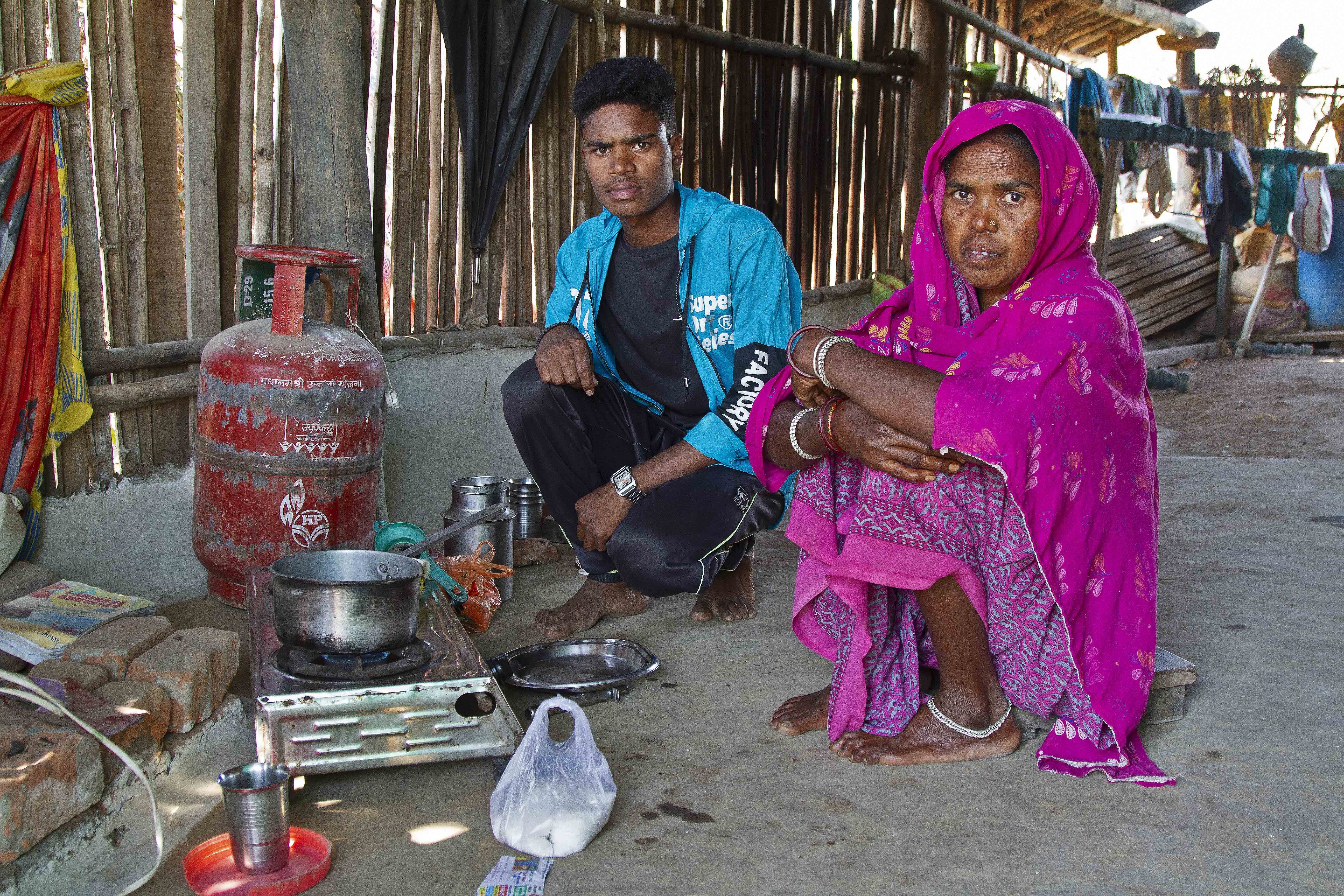It was a long, hot and hard day at the Dhurve Kukra forest camp deep in the core of the Satpura TR in Madhya Pradesh. Kukra was one of the larger villages inside the STR on the banks of Denwa river, which had been relocated to Sohagpur on the edges of the park in 2013. It was seven years since Kukra had seen any people, cattle or farming. Grasses had reclaimed the farmland and wildlife was gradually taking over this former village surrounded by dense forests and hills.
The moon was a waxing crescent. Dhannalal Marskole, a Forest Guard, and his four colleagues had finished eating and gone to sleep around 9pm as temperatures rapidly cooled down, as these do in such thick forests on the riverside. Summers meant sleeping out under the stars. Dhanna, as he was known, had his bed next to his colleague Suresh Uikey near the gate of a scrappy bamboo fence around the camp. Three other colleagues had their cots on the roof. Like it was every day, soon Dhanna started snoring loudly, and his snores competed with the loud calls of the Jungle owlets and Nightjars. “Dhanna is at it again,” Suresh smiled and was asleep soon. Just past midnight, Suresh said around 1215, he thought he heard a strange thudding sound as if something had fallen and was being dragged. He woke up with a start and saw something crouched over Dhanna trying to pull him away. It looked like a leopard in the dull moonlight. As Suresh shouted, others woke up and came running down; the leopard jumped the bamboo fence and melted away into the darkness.

As they flashed lights on Dhanna, they saw him lying inert in a semi foetal position, his fists clenched. Blood rapidly oozed out of his neck. Suresh put his hand on Dhanna’s face and touched his neck. No breath or a heartbeat. Suresh and three colleagues were shocked and frightened. They had been living in the forest for years and had never faced something like this. In fact Dhanna, who was 50 years old, grew up in this very Kukra village and was one of the beneficiaries of the relocation process. “The only animal we are really careful about is a sloth bear. Leopard, or even a tiger, is fine. They just go away if they sense humans,” his senior colleague, Ganga Ram Pandey said. The staff at the camp spent frightened nights on full alert for a long time. “Do we have a man eater in our midst,” they wondered. But nothing happened thereafter. The leopard did not come back to the camp and there were no attacks on anyone in the neighbourhood thereafter. “It’s a mystery,” former STR Director, RP Singh, said. “What triggered this attack? What attracted the leopard to this man, and not others, is a matter of conjecture. Was it his loud snoring that made it think he was prey, for it certainly did not have a taste for humans or there would have been more attacks.”
Dhanna left behind his wife Shardabai and four children. His eldest daughter is married, while his son, Rahul, is 17. The other two daughters are younger. Rahul is likely to get a job with the forest department once he is 18, but he is also training to join the growing tourism industry around STR. They live in New Kukra village near Sohagpur, where all other families of the original village inside STR have settled.

Three months later, 400 kilometres away, in another tiger reserve, also in MP, a tigress was being tracked. Panna Tiger Reserve has a history of wantonly losing all its tigers to poachers and then rebuilding its population later at great expense and dedication. So the staff is especially sensitive to the dynamics of its new population and the tigers are being constantly monitored.
On the morning of 14 August 2020, a team of six elephants and 16 people were trying to locate P433, a tigress, whose radio collar had expired. The staff had earlier noticed from camera trap pictures that the animal had grown substantially in size with a possibility of the collar tightening around its neck and asphyxiating it. They obviously wanted to remove it before that happened.
P433 was P4’s third from her third litter born in Panna. P4 and her brother were orphaned as cubs in 2008 in Kanha when her mother, known as nau (9) numberwali, was found dead in the Kisli range, with wounds that indicated a territorial fight. The cubs were moved into a large enclosure at Ghorila in Kanha’s Mukki range and reared to adulthood by keepers. She did not have a number then. Tiger cubs are not counted and are assigned numbers only these are adults. In 2011 she was moved to Panna and became P4. She was one of the first tigers to be a part of a pioneering, and successful, big cat rewilding experiment in India. Her brother, a huge male, was not so lucky. He was sent off to the Van Vihar zoo in Bhopal where he died.
Most of the working elephants of PTR had been captured as adults in Chhattisgarh, trained and moved to Panna. Amar Singh, the deputy range officer of the Hinauta range was sitting on a big male named Ram Bahadur, who had long tusks. His boss, the Range Forest Officer, Bindeshwar Ram Bhagat, was not feeling too well that morning. A senior state service officer with over 25 years’ experience Bhagat was a hands-on boss who liked to take the lead. “Despite not feeling well he came that morning, even though we advised him not to,” Singh said. The plan was to locate P433 and radio the Field Director and the Veterinarian who were waiting at the Hinauta gate.

As he wanted to be on another elephant, Bhagat decided to pass-on a walkie-talkie handset to Amar. He stood next to Ram Bahadur and raised his arm to give the handset to the mahout. The next thing they knew Bhagat was on the ground and Ram Bahadur had impaled him with his tusks.
“It all happened in a flash,” Amar Singh recalled. “One moment he was handing over the walkie-talkie and the next moment he was on the ground with the elephant goring him with force. We thought Ram Bahadur would go berserk after this, but no, the elephant just stood back as if nothing had happened. We moved it away quickly and made it sit on all four knees. I got off and ran to Bhagatji; he was still alive. It was around noon and we rushed him to the hospital, but he died before we could reach.”
Three months after the incident, Bhagat’s wife Damayanti, is yet to come to terms with what happened. “I got to know at 1244, yes, 1244. That time is etched in my mind when my world went topsy-turvy. Why did this have to happen to him, he was such a nice man,” she mumbles. Their son, Kamal, was training to be a 3D animator in Indore and wanted to work in the film industry. “I have another year to graduate, but I don’t think I will be able to finish the course now. I need to be here to support my mother,” he said. The forest department has offered him a job and he will be joining as a clerk at the PTR headquarters soon.
Ram Bahadur was kept under close observation for many days. He remained completely normal, as if nothing had happened. We will never know what made it turn on Bhagat that fateful day in PTR even though he was very familiar with him, just as what made the leopard go for Dhanna in STR that night will remain a mystery. But both incidents very starkly exemplify the professional hazards that our frontline forest workers, our Van Rakshaks, routinely face every day in their working lives. And they are on call 24 hours.
19 Van Rakshaks have died in the line of duty across India since April this year. 58 have died in the past five years. Two have died fighting poachers, 28 were killed by wild animals and 37 have died in accidents of various sorts in the forests. Families of those who were permanent employees of the forest department received some compensation, but those who were temporary daily wagers, sometimes for over 20 years, received almost nothing.
– Aniruddha Mookerjee, the author of this blog post, started WTI’s Wild Aid, and Van Rakshak Project, in 1999. He initiated VRP’s Frontline Staff Assurance Scheme in 2000 which continues to be the only one of its kind with a national footprint.
He lives on the edge of Kanha Tiger Reserve and can be contacted at jhampanm@gmail.com
If you liked reading this article, consider donating to the cause, WTI’s ex gratia assistance has been ensuring immediate financial assistance to bereaved families of the country’s brave Van Rakshaks. Help us Help them when they fall in the line of duty.